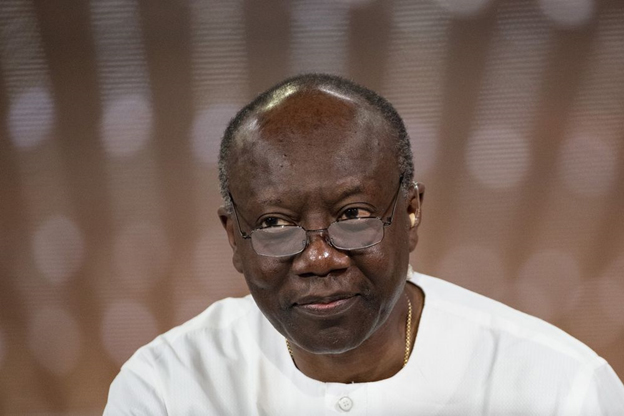The Finance Ministry has appealed against the downgrade of the country’s credit rating to Caa1, from B3 by ratings agency Moody’s.
It is citing the omission of key material information from the assumptions driving some of Moody’s forecasts and projections such as the 2022 budget expenditure control measures, the 2022 upfront fiscal adjustments and inaccurate balance of payment statistics as well as the appointment of a new primary credit analyst, only four weeks prior to such a major credit rating decision as the major reasons.
It also questioned the committee’s refusal to consider deferring such a monumental rating action until the analyst had enough time to more fully understand both the quantitative and qualitative aspects of the Ghana credit story.
In a statement, it said the government of Ghana is completely puzzled by the decision to downgrade Ghana’s credit rating to Caa1, despite the series of progressive engagements it had with the team from Moody’s, the quality of the data supplied, as well as the medium-term economic and fiscal focus of the government, underpinned by key fiscal consolidation reforms such as the policy decision to cut expenditure by 20%, as recently announced by the Minister for Finance, Ken Ofori-Atta.
“Perhaps, this singular action by Moody’s confirms the notion held by many that there is an urgent need for reforms in the conduct of rating agencies given their ownership structure and the ramifications that their actions have on Sovereigns especially in Africa. The call for rating reform which was loud during the peak of the COVID-19 pandemic must be revived as a matter of urgency”, the statement added.
It quoted the sentiments expressed by the South African Revenue Services Commissioner recently that “While we understand the underlying factors that the rating agencies point out, we think that during such a time of crisis, where the whole world is recalibrating and redefining its economic status, for any downgrades to be issued during this time is like kicking us when we are down “…must guide rating agencies in these unprecedented global difficulties facing economies big and small. We shall actively continue to support the global outcry against this leviathan.”
Unfortunately, the statement said “it is also worthy to note that on a regional basis, there is ample evidence that Sovereigns on the African continent in particular have suffered more adverse rating actions than any other continent since the pandemic, despite the fact that the impact of COVID-19 has been relatively manageable in Africa. We are gravely concerned about what appears to be an institutionalized bias against African economies in this aspect, as credit rating analysts assume highly conservative postures and low risk tolerance for African sovereign credits with little regard for the adverse impact on the cost and access of financing for African Sovereigns.”
Continuing, the Finance Ministry expressed worry that Moody’s rejected its appeal and went ahead with the downgrade despite all the concerns raised which it believes were not factored into their decision.
“The government wishes to state that it is optimistic about the future as confirmed by other credit rating agencies and remains fully committed to restoring fiscal rectitude in public finances. The recently announced expenditure rationalization measure to decisively strengthen fiscal consolidation of the 2022 budget underscores the government’s resolve to address critical concerns over the economy, create jobs for the youth, obtain a positive primary balance and stabilize debt”, it pointed out
The statement continued that the government will continue to pursue ongoing efforts to revitalize the economy amidst the COVID-19 pandemic.
“In line with this, senior officials from the Ministry of Finance and the Bank of Ghana shall continue to engage the public and investors on the Government’s medium-term economic and fiscal strategy”.
It concluded saying the government remain absolutely confident in our resolve to overcome the current challenges with fiscal discipline and growth, in line with the President’s vision to build a strong, resilient and prosperous economy and a Ghana Beyond Aid.
Moody’s downgrades Ghana’s rating to Caa1; but outlook stable
Moody’s on Friday 4th February, 2022 downgraded Ghana’s long-term issuer and senior unsecured debt ratings to Caa1 from B3 and changed the economic outlook to stable from negative.
The downgrade to Caa1, it said, reflects the increasingly difficult task the government faces addressing its intertwined liquidity and debt challenges.
Recently, another ratings agency, Fitch, downgraded Ghana’s credit rating to B-, from B and economic outlook to negative, from stable.
“Weak revenue generation constrains government’s budget flexibility and tight funding conditions on international markets have forced the government to rely on costly debt with shorter maturity”, it explained.











